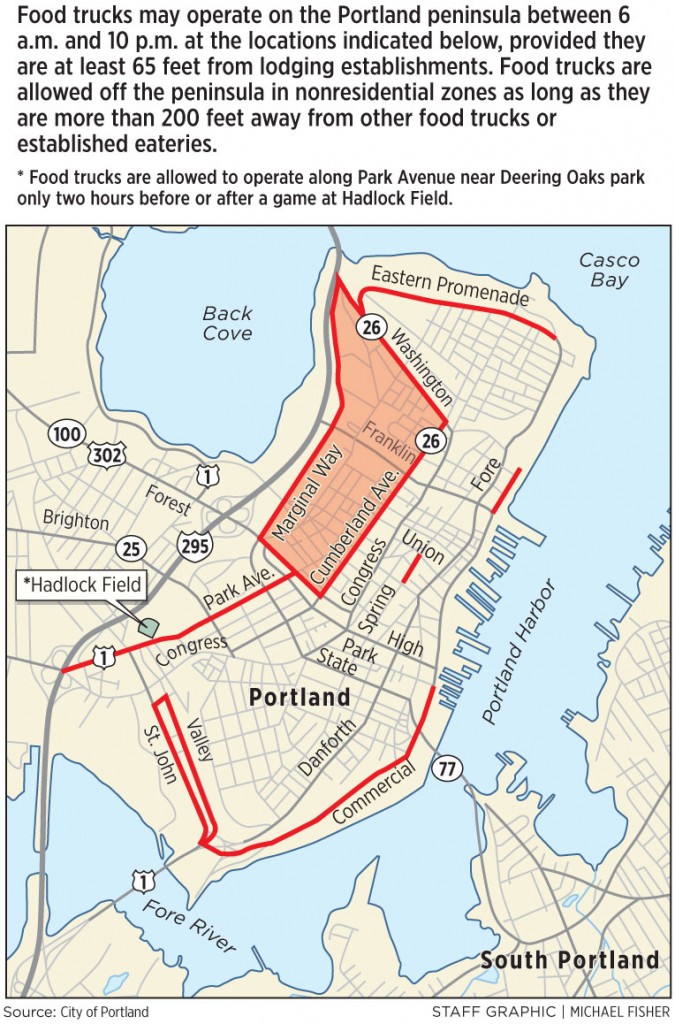PORTLAND, ME – At long last, Portlanders will be able to walk up to a food truck this summer and grab a hamburger, taco, hand pie, cup of coffee or other casual fare – years after the food truck revolution invaded other cities across the country.
The presence of a few food trucks downtown will be a huge step forward for this food-loving city, which struggled over the regulations and made the whole process way more complicated than it needed to be. We should celebrate the fact that the city has finally embraced an idea that will make life here just a little bit better.
But don’t crack open the Champagne too fast.
When food truck operators actually went to get their licenses and open their businesses, they got a couple of unwelcome surprises. Turns out there are still two big regulatory hurdles to get over before we can declare Portland a food truck-friendly place.
First, food truck operators are being required by the city to pay $105 in fees — $30 for a building permit and $75 for an occupancy permit — for every place they park on private property, even though they already have paid for a lease agreement with the property owner. That’s on top of their $500 food truck license and $110 inspection fee. (Night vending is another $200.)
This means that some trucks will have to limit where they can do business, since all those fees add up quickly.
But food trucks are supposed to be mobile, right? That’s the whole point.
“They wrote the ordinance so that it would encourage people to park on private property, basically, instead of roaming around the city and trying to find parking spots, especially in the Old Port and the peninsula,” notes Sarah Sutton, who owns the lobster roll food truck Bite Into Maine and has been trying in vain to get the City Council to take a look at the issue. “It’s really restrictive. And now — I don’t even know how it happened — they’re charging building permits for every spot on private property that they know you’re going to park on.”
This is important because, truck operators say, in order to make their business work at all they must have a place to park on private property. There just are not enough public parking spots available on city streets because of the restrictive limits that were put in place to spare Portland’s restaurants a little competition.
The second issue has to do with clustering. When the ordinance was being developed, food truck operators made it clear they wanted to be able to cluster together in a parking lot, especially for specific events. But when the regulations were published, the rules said food trucks had to stay at least 65 feet from each other on the Portland peninsula, and 200 feet away from each other off-peninsula.
That hasn’t kept some trucks from clustering anyway, at the popular monthly “Flea Bites” gatherings at the Portland Flea-For-All on Kennebec Street, for example. But they are always looking over their shoulders while they’re selling their sandwiches, worried that these popular events will be broken up by the city because of a rule that they didn’t expect to be in the ordinance in the first place.
Find the entire article by Meredith Goad at pressherald.com <here>




